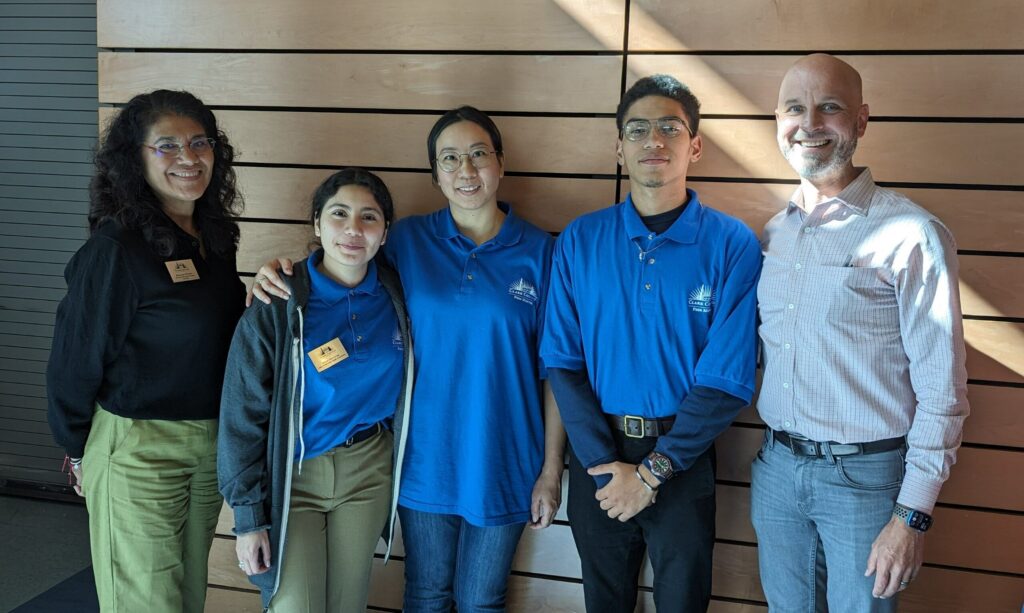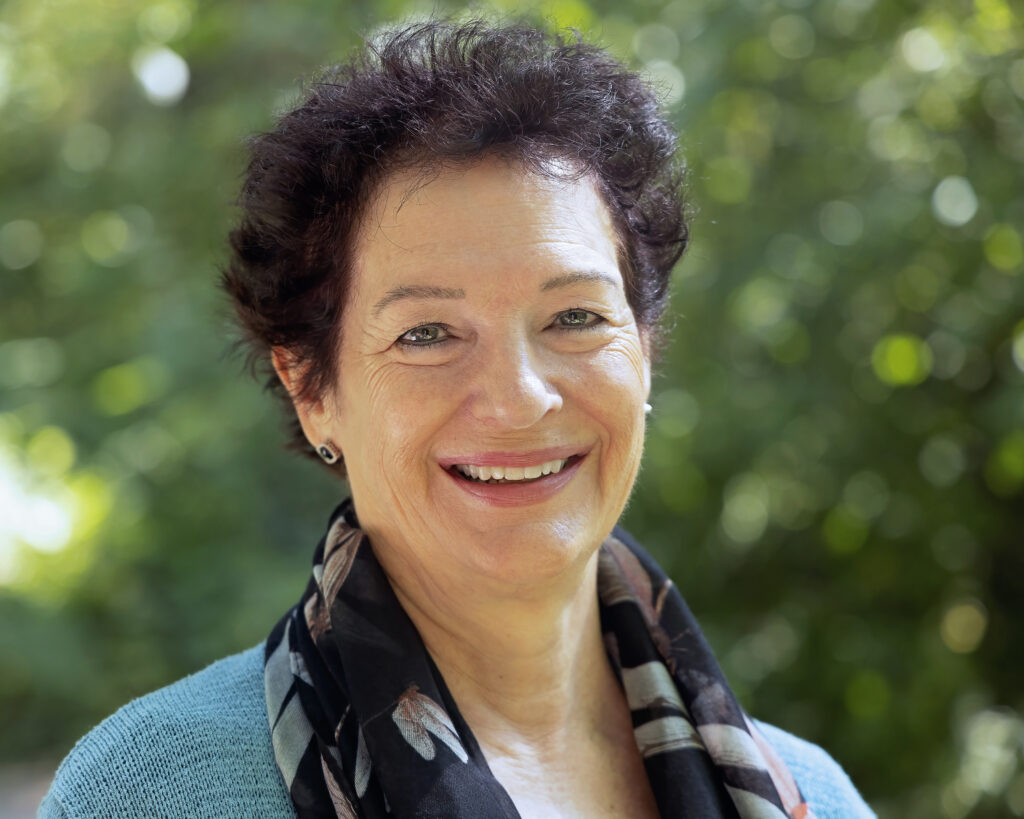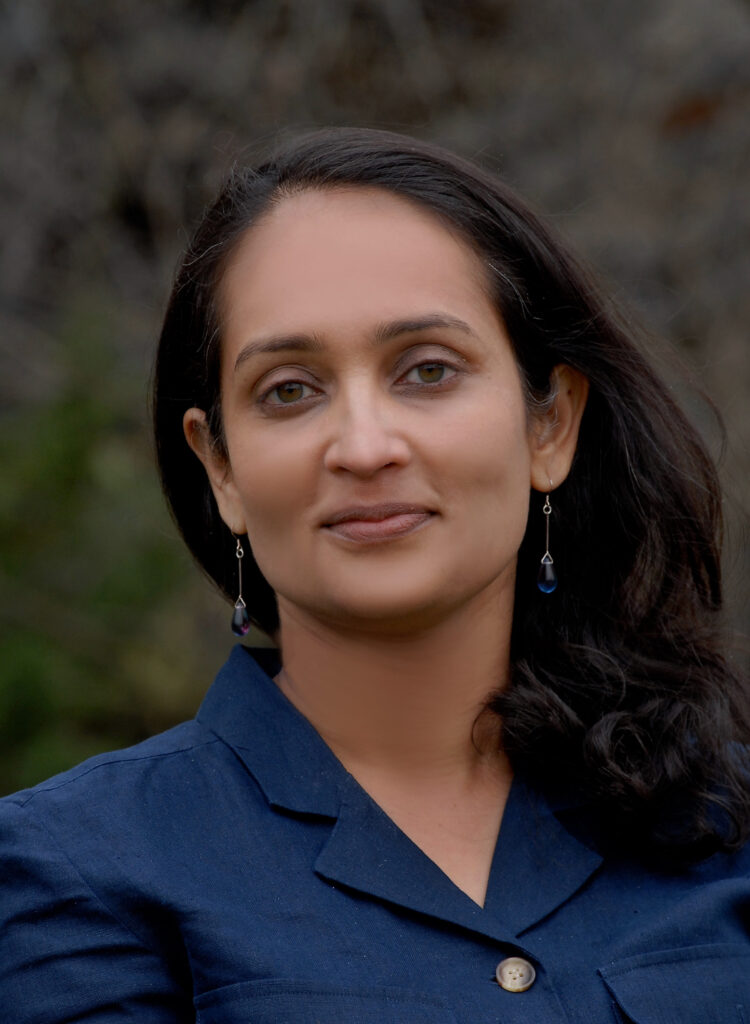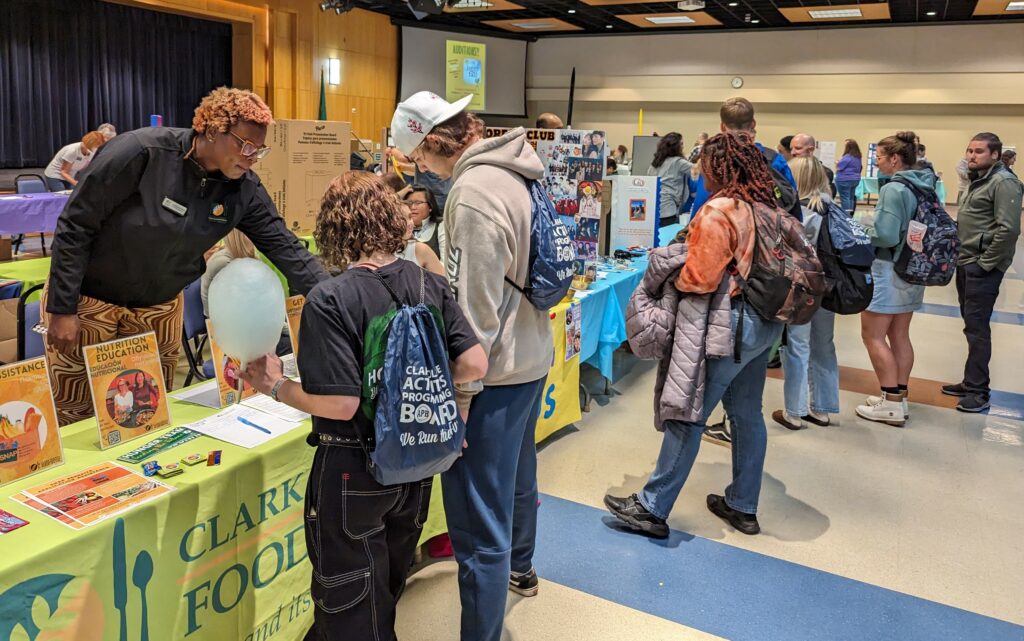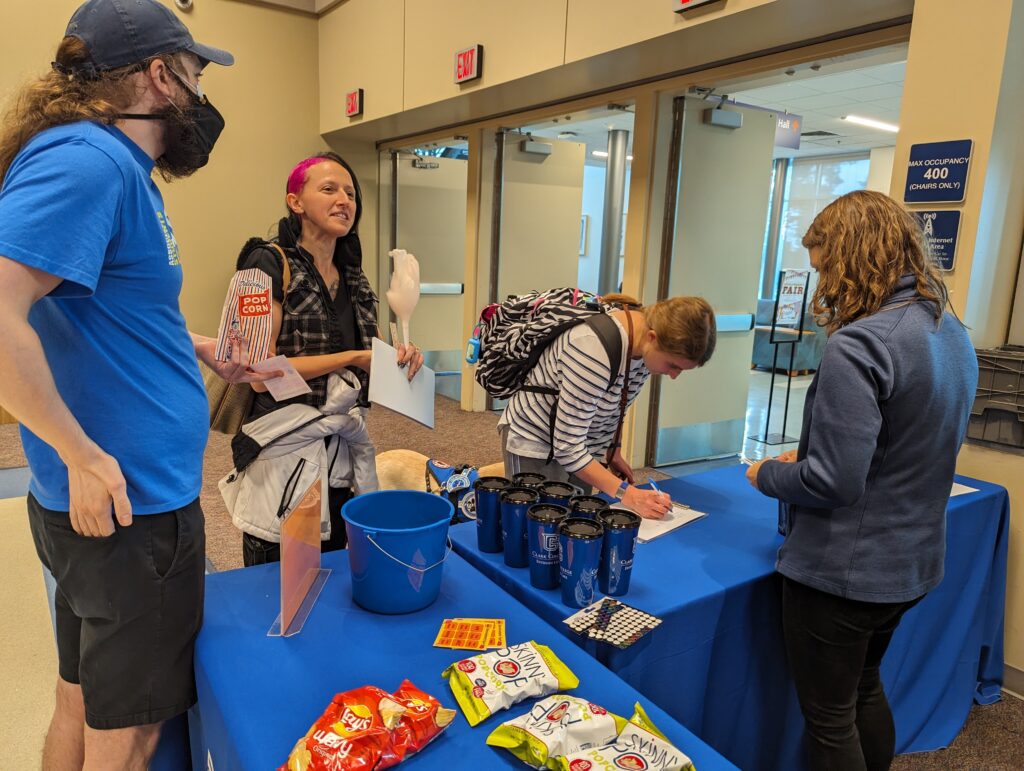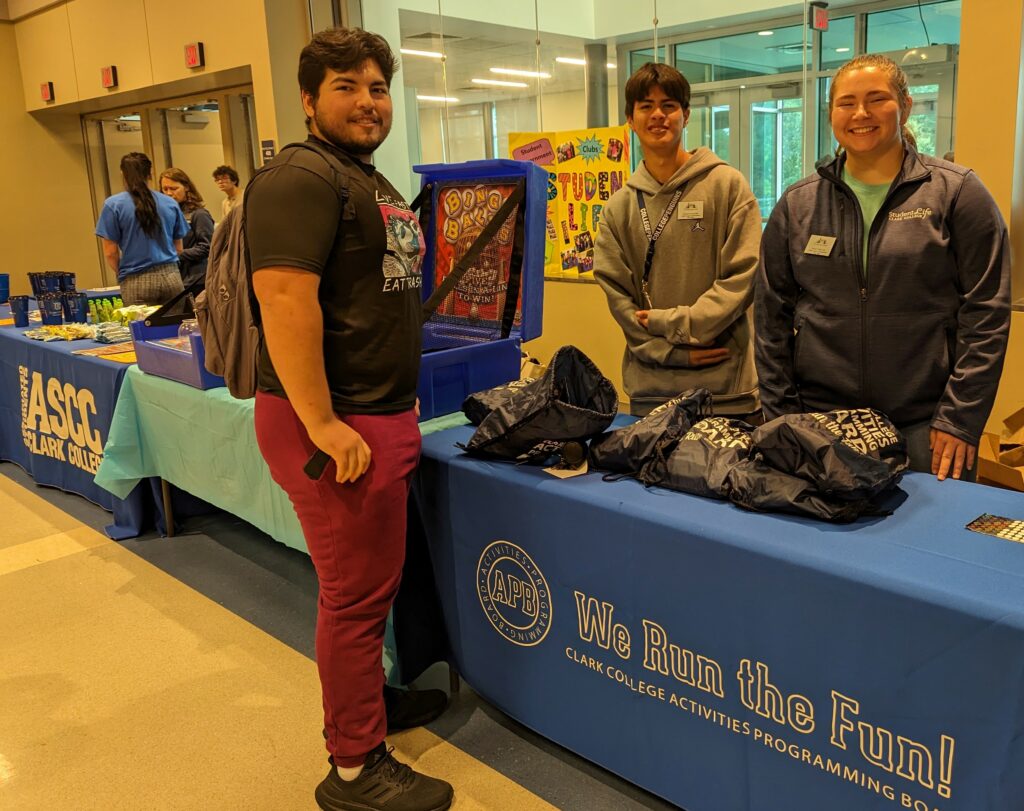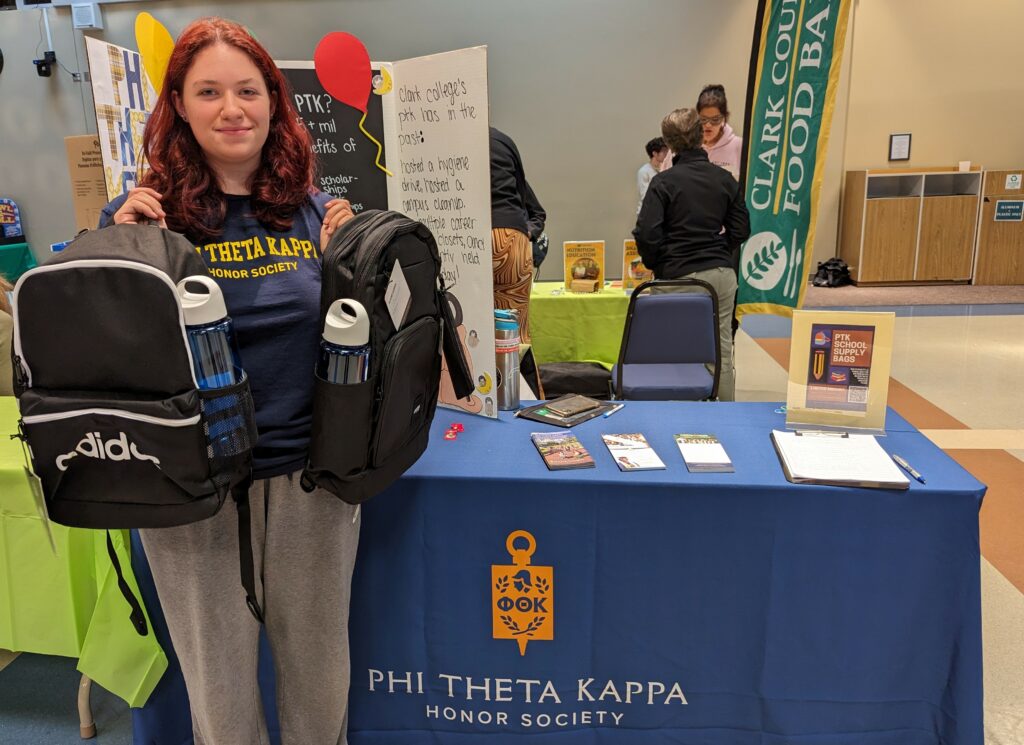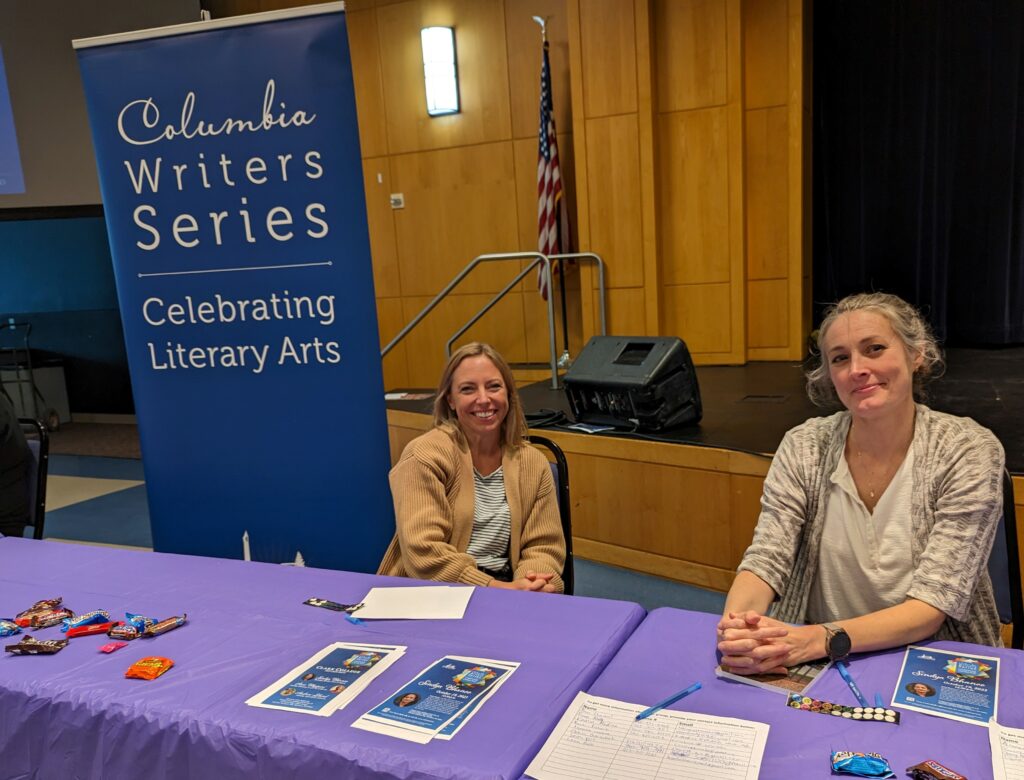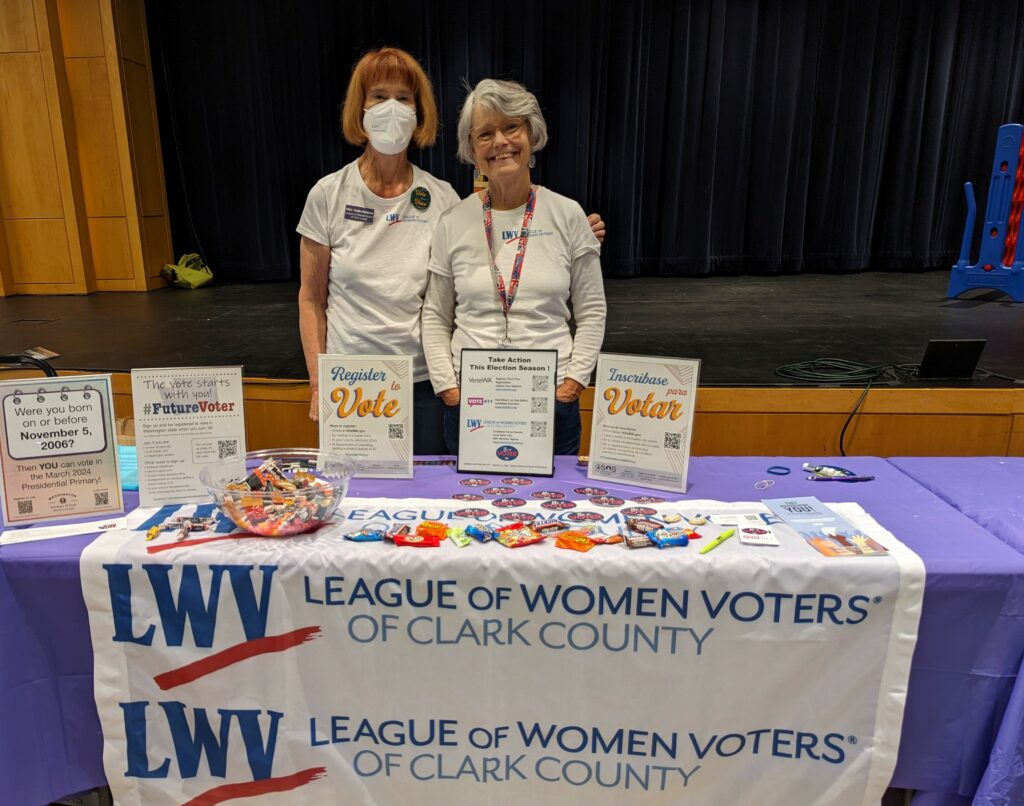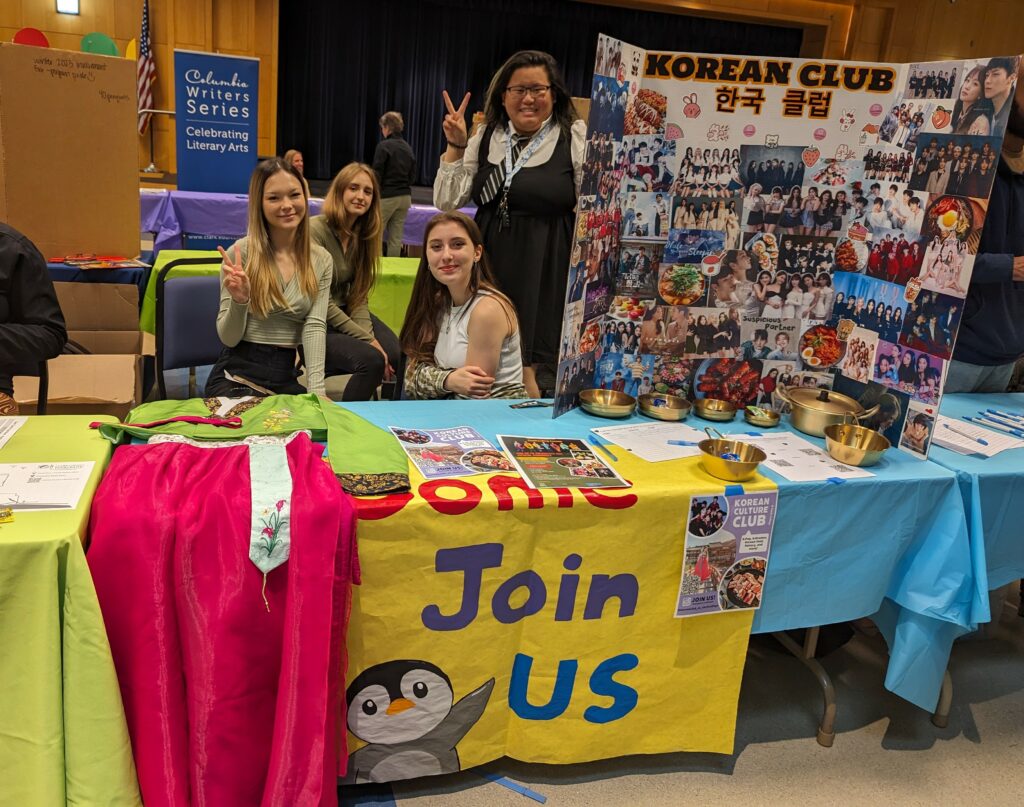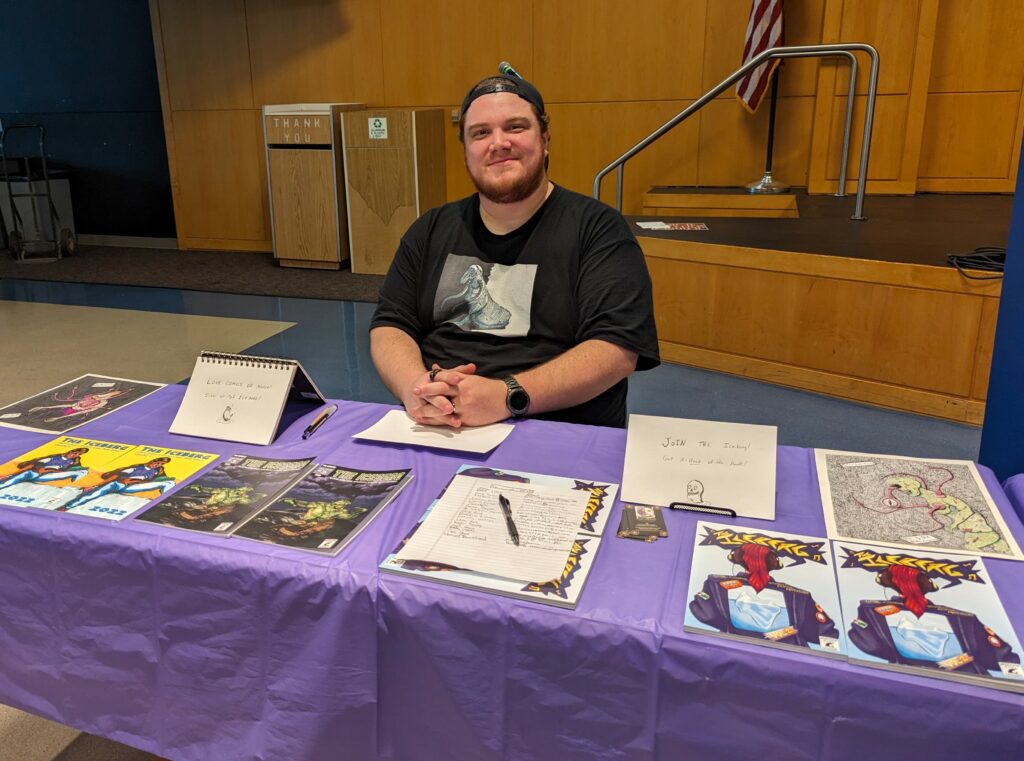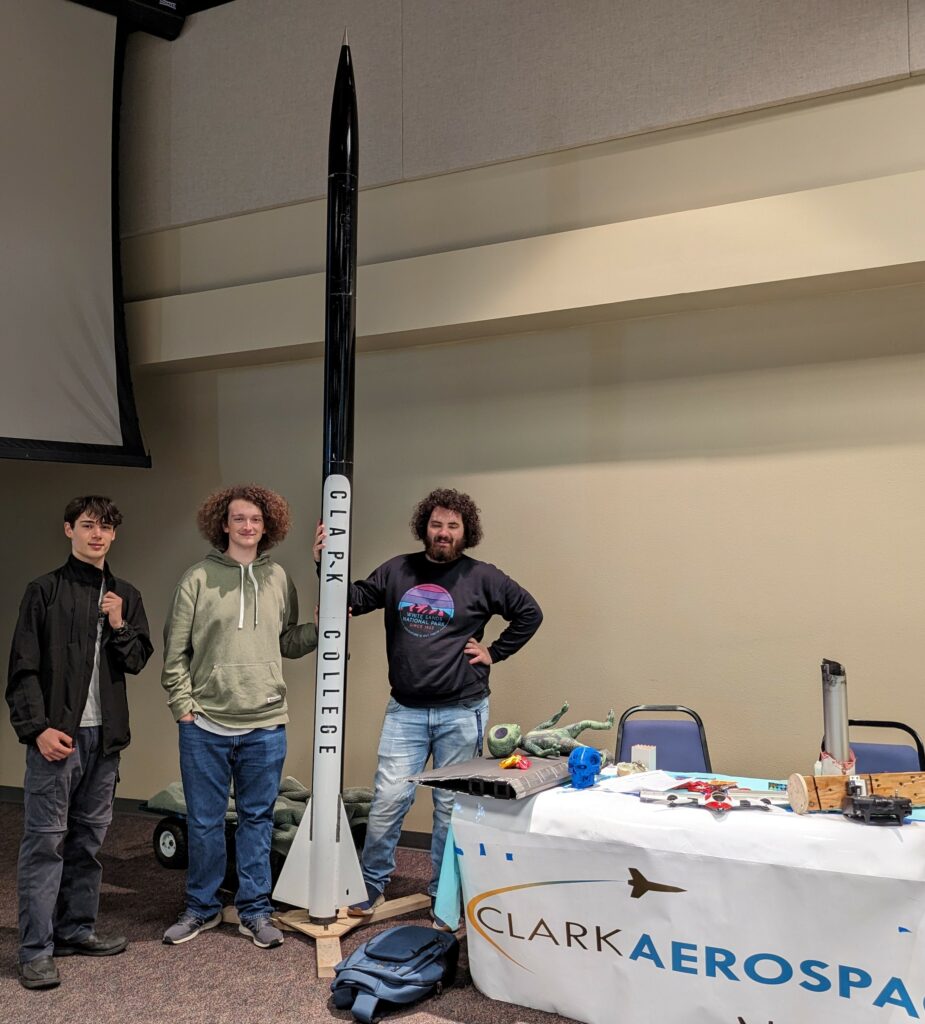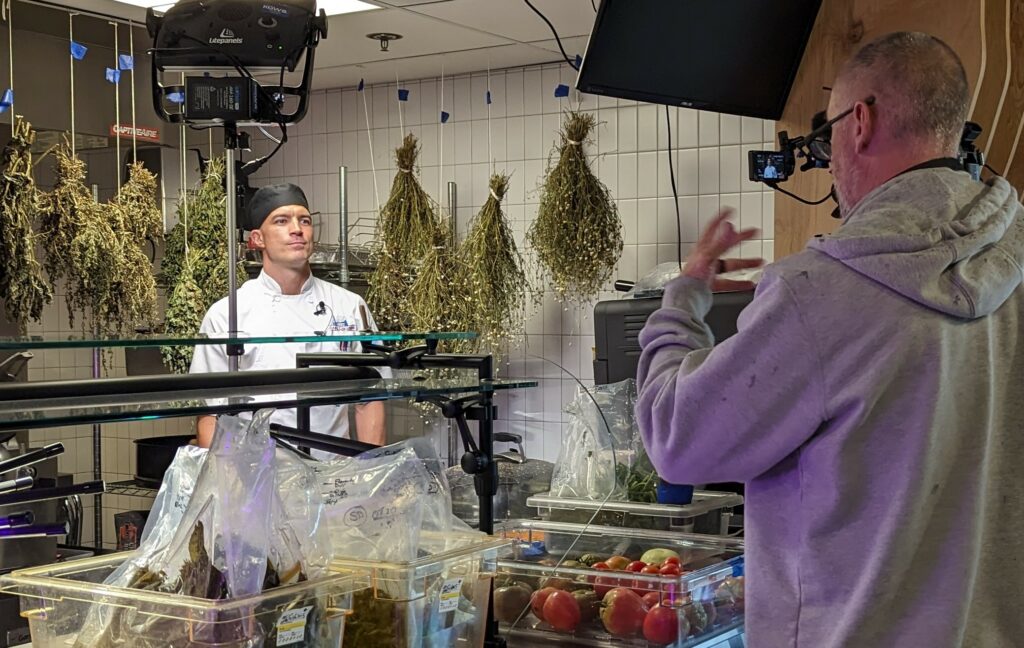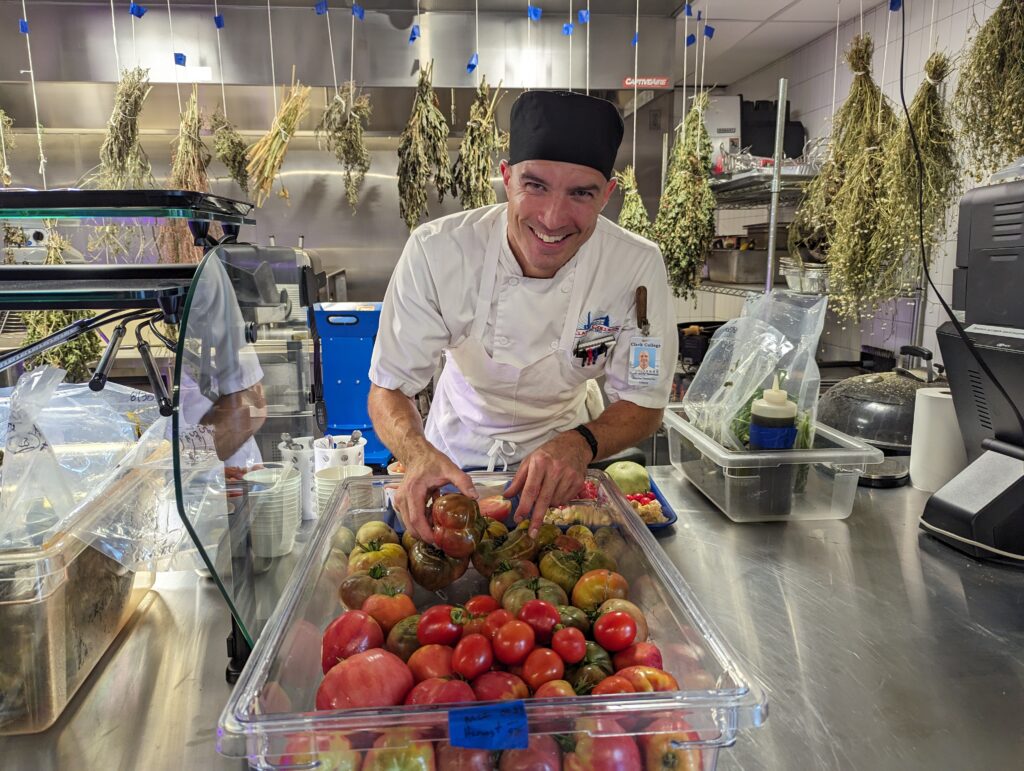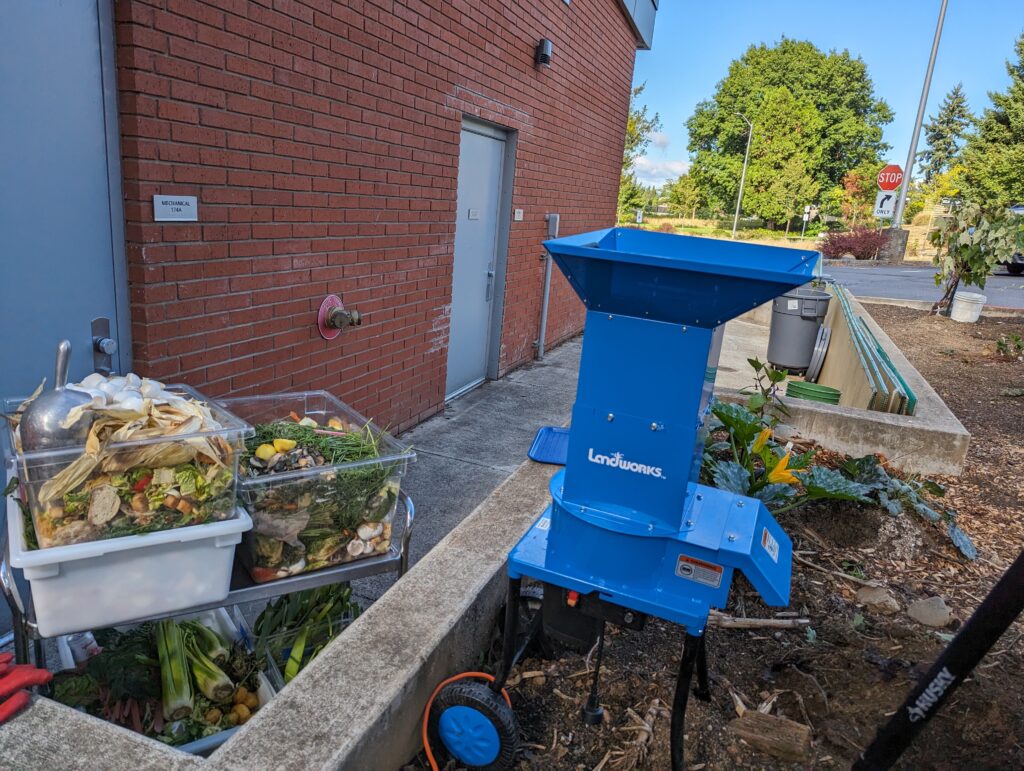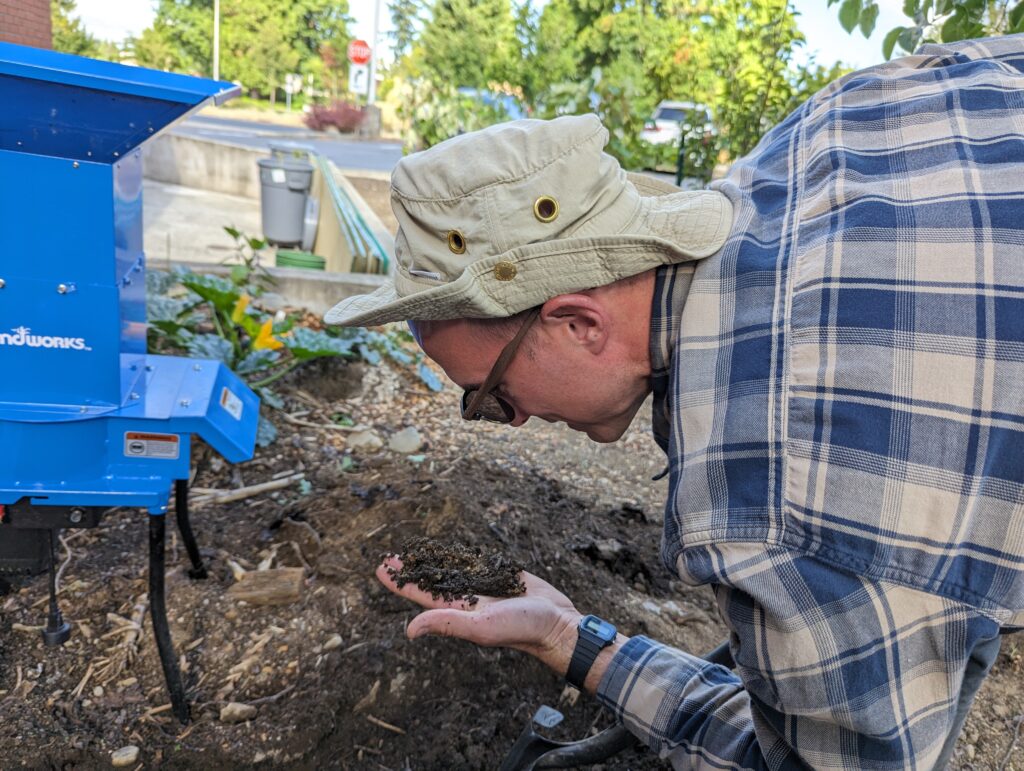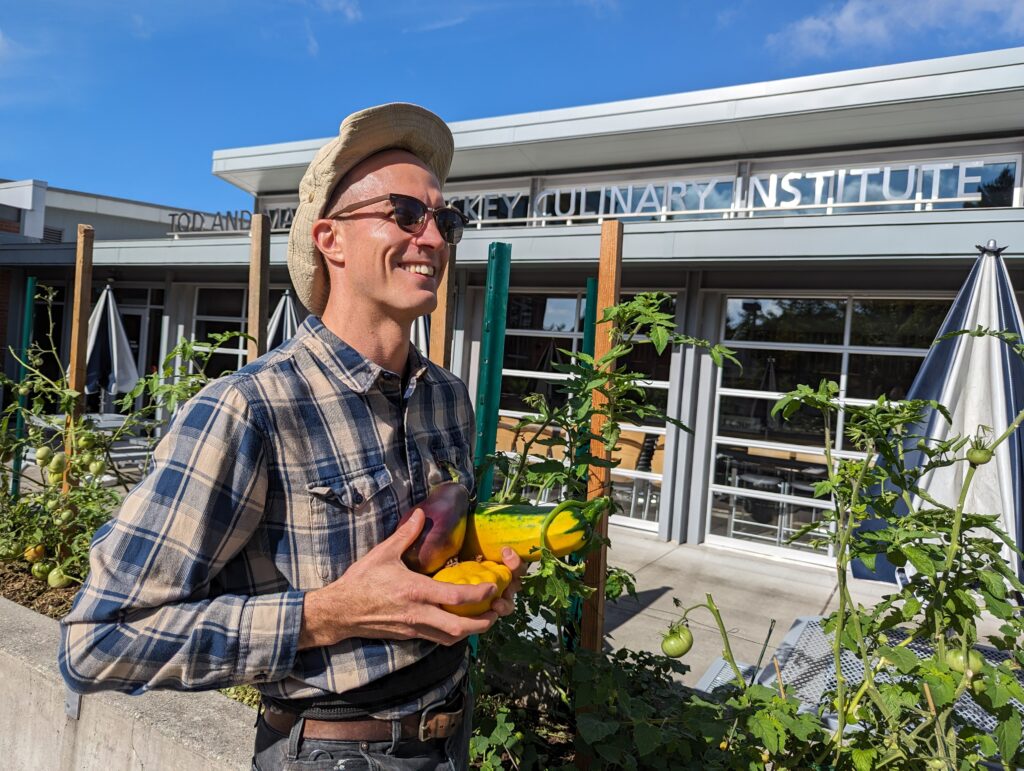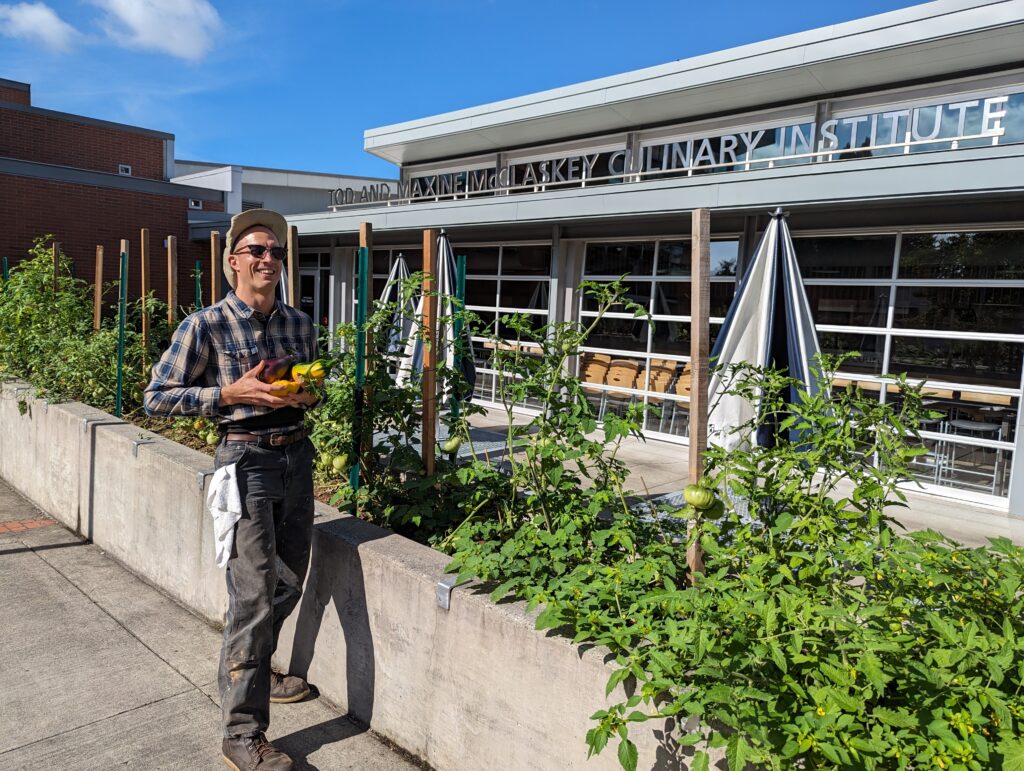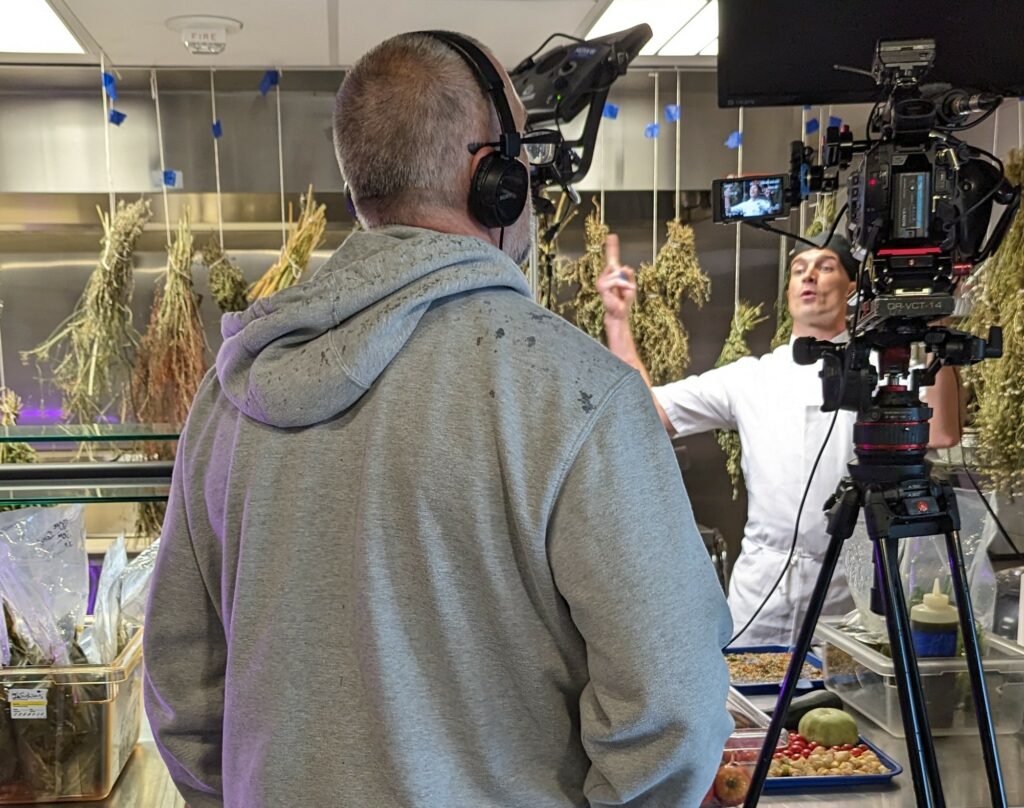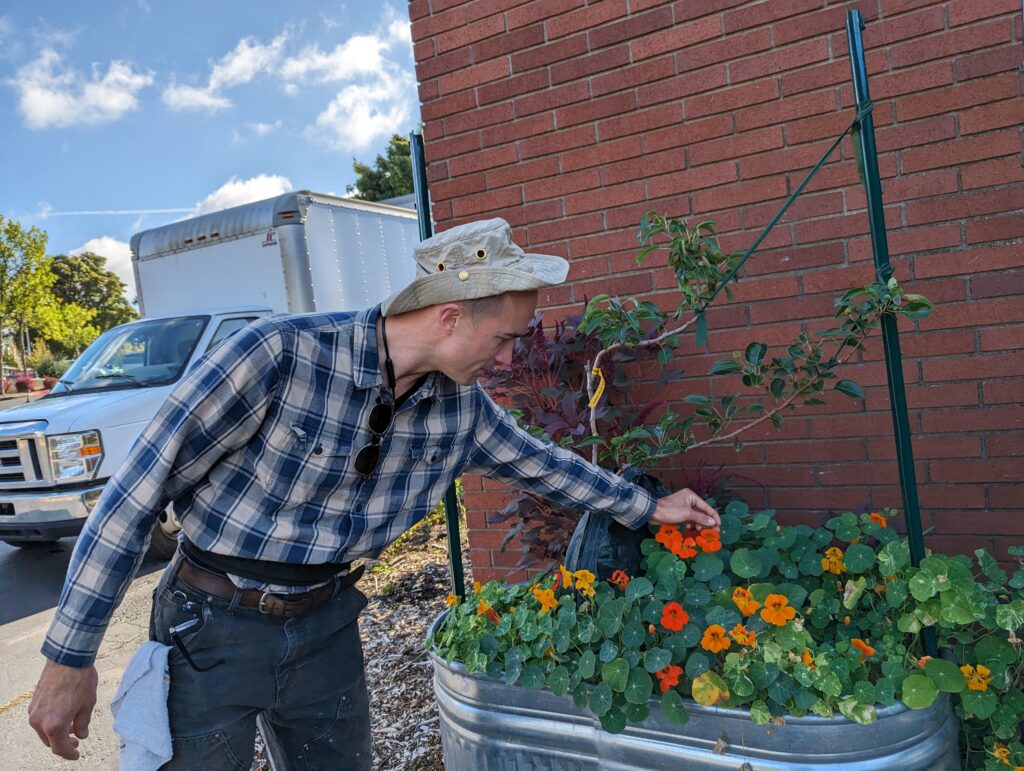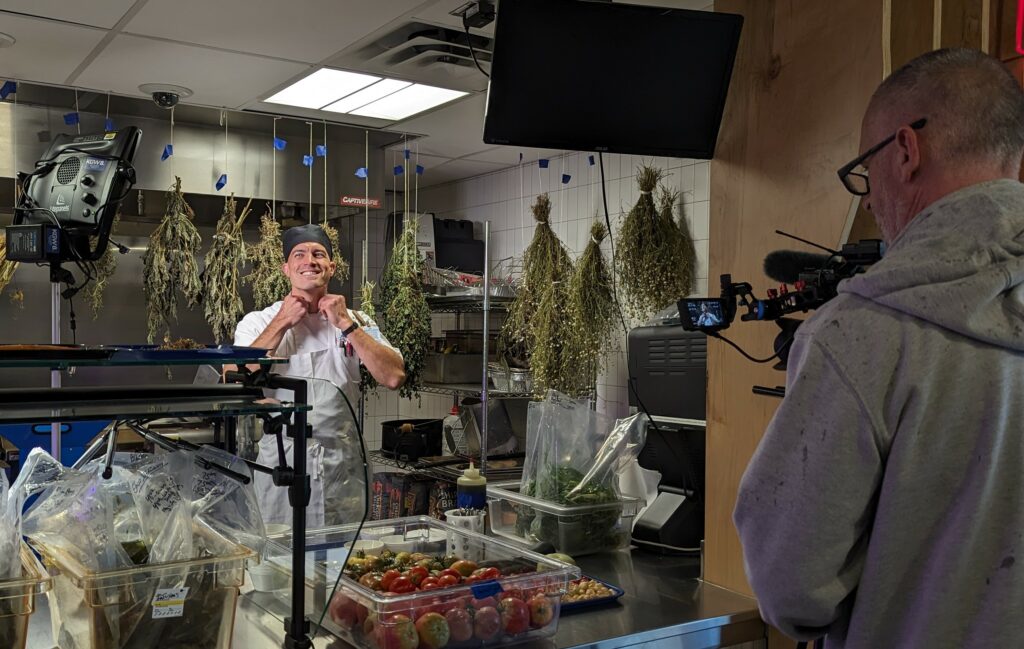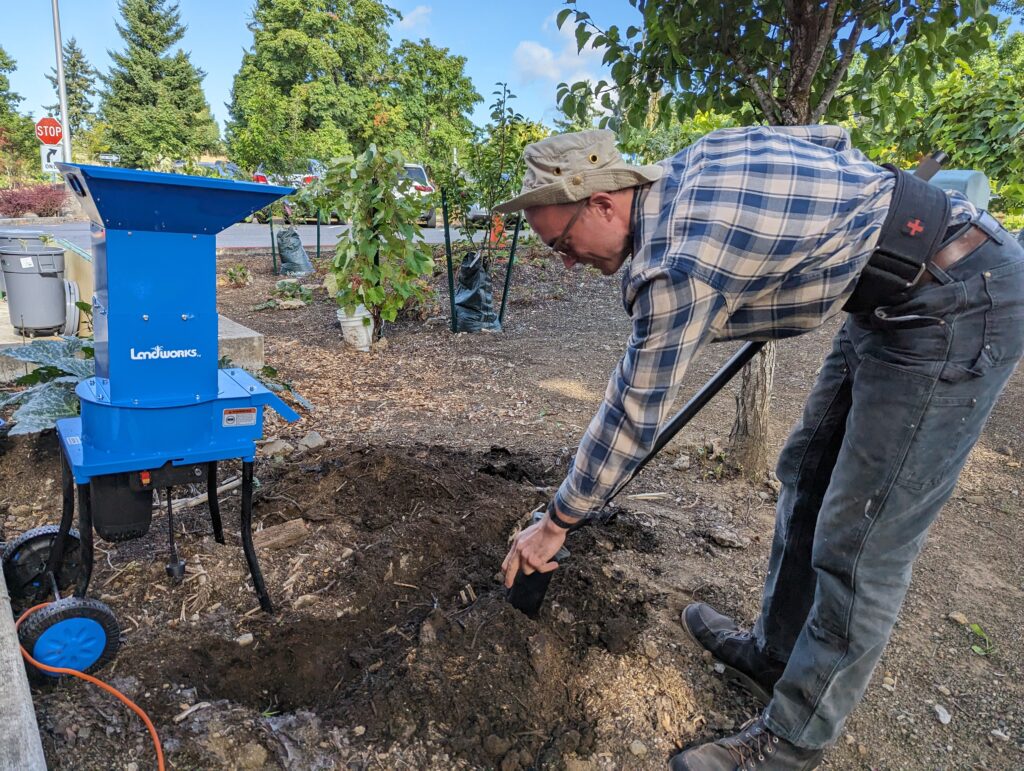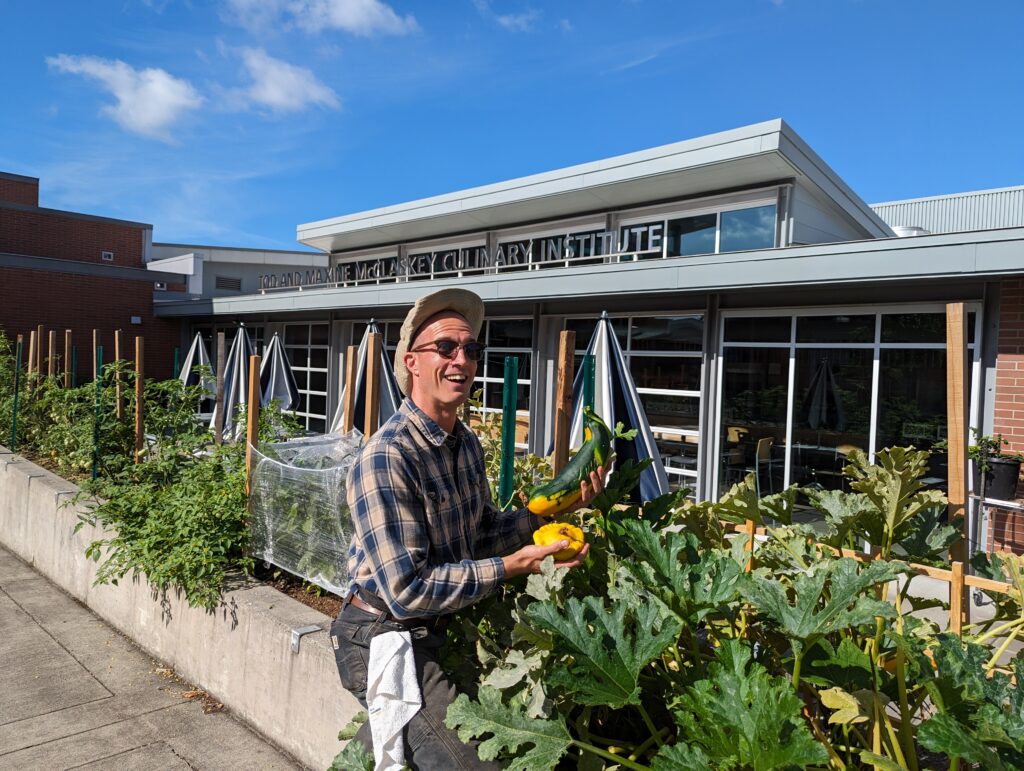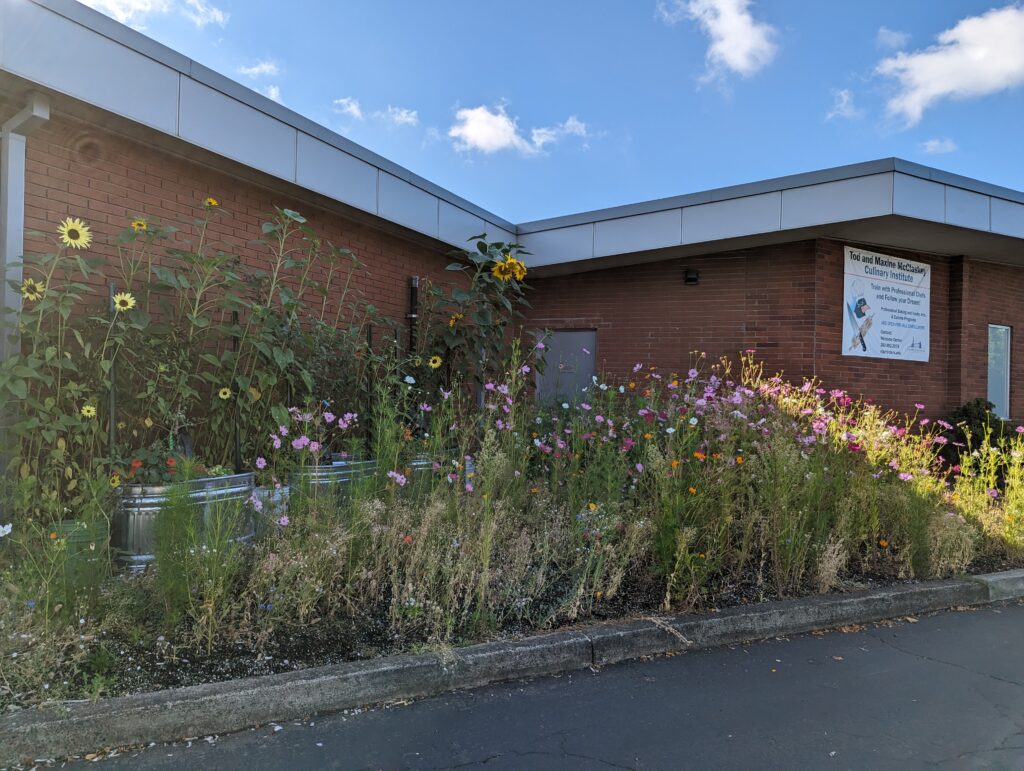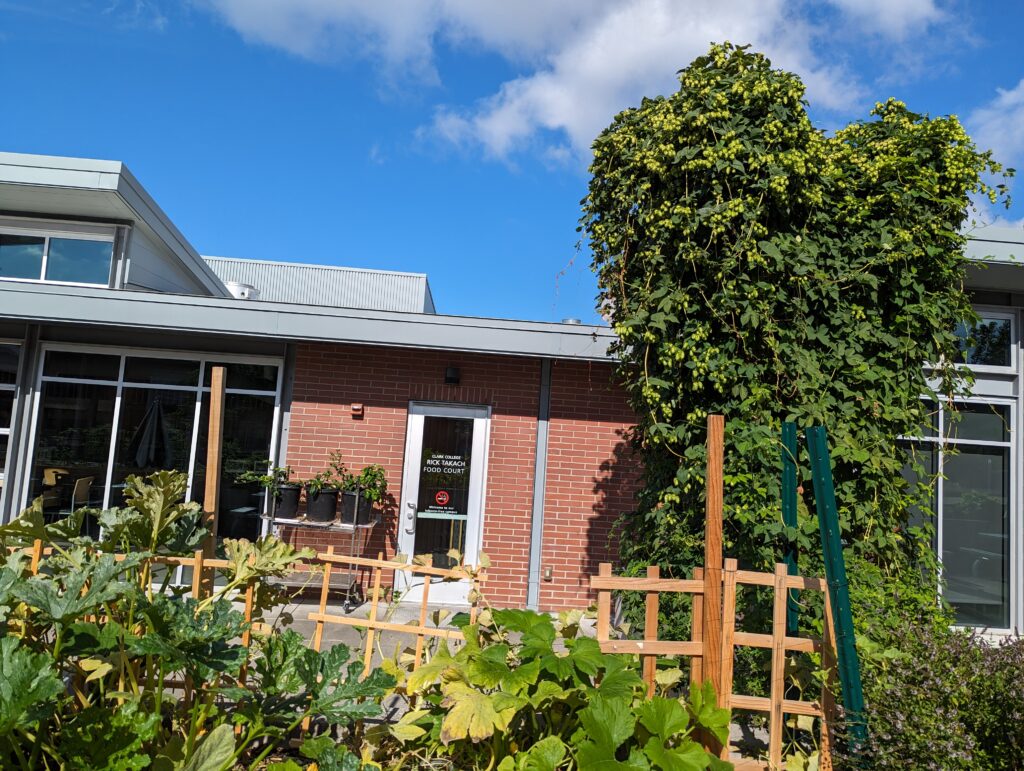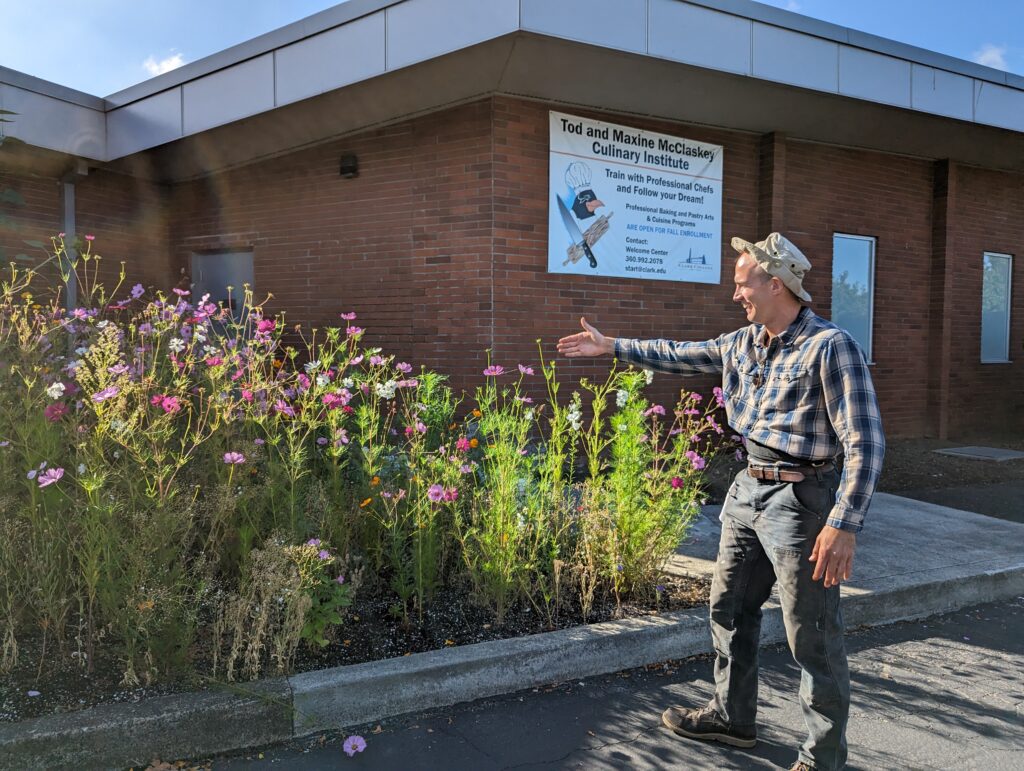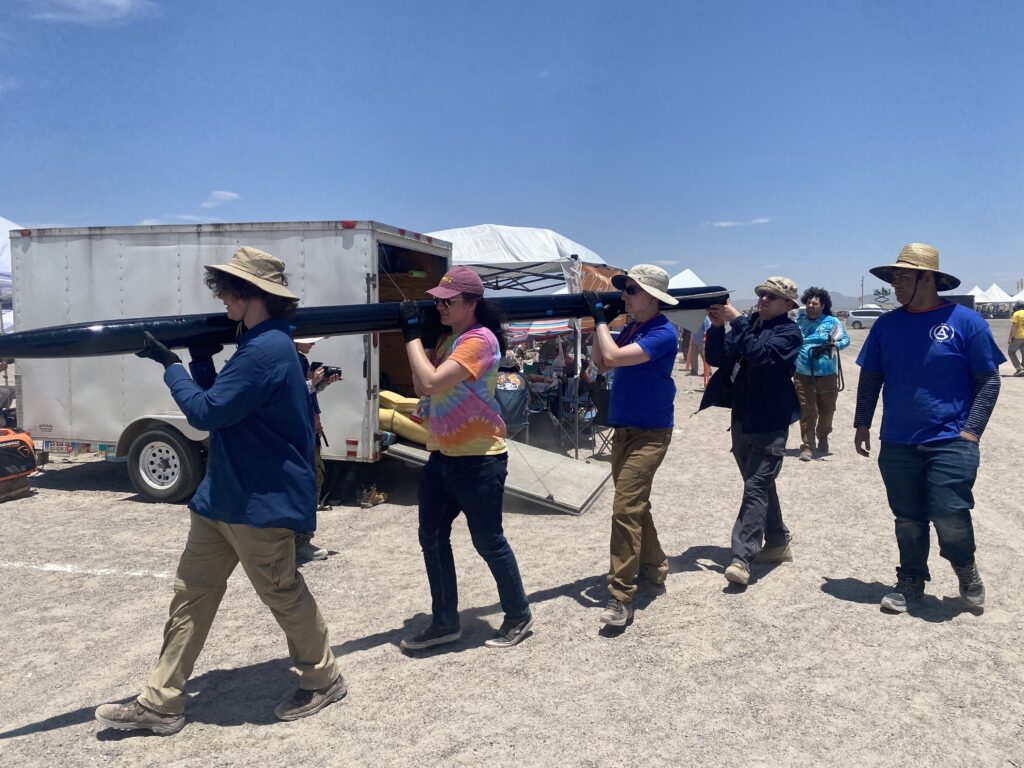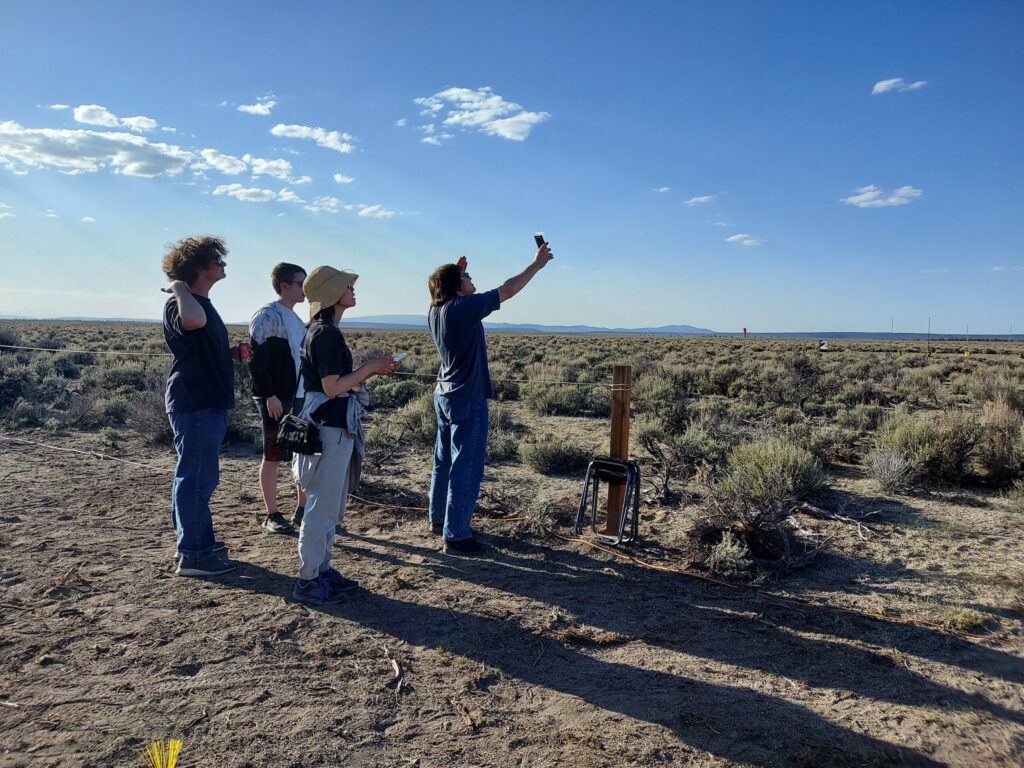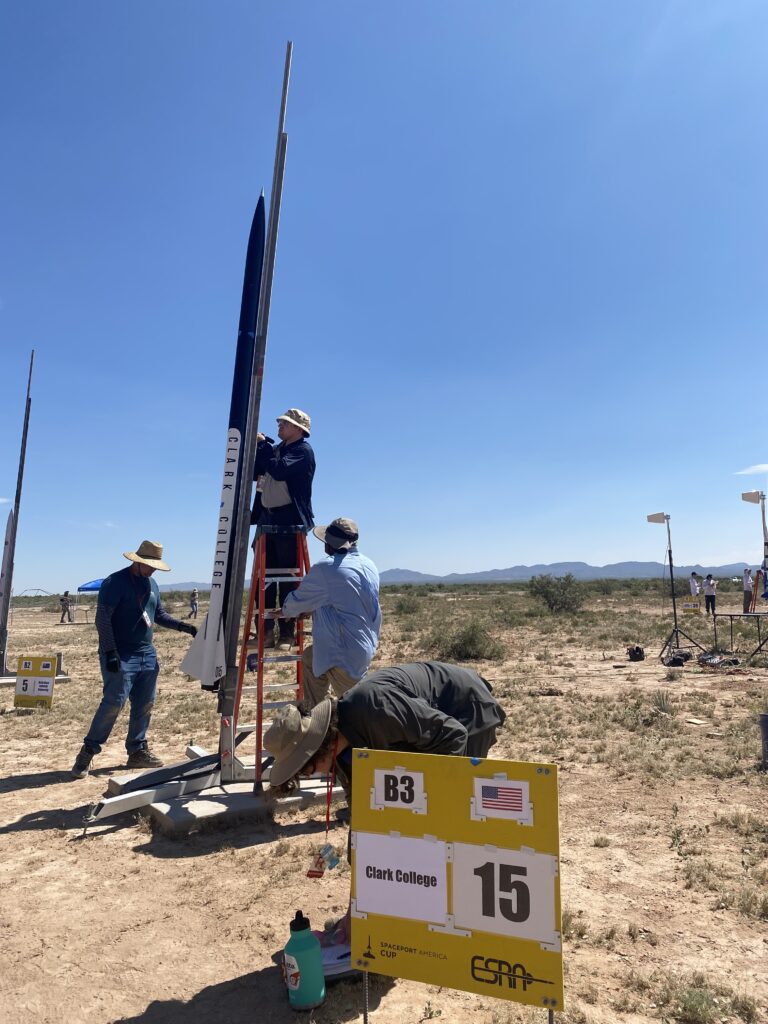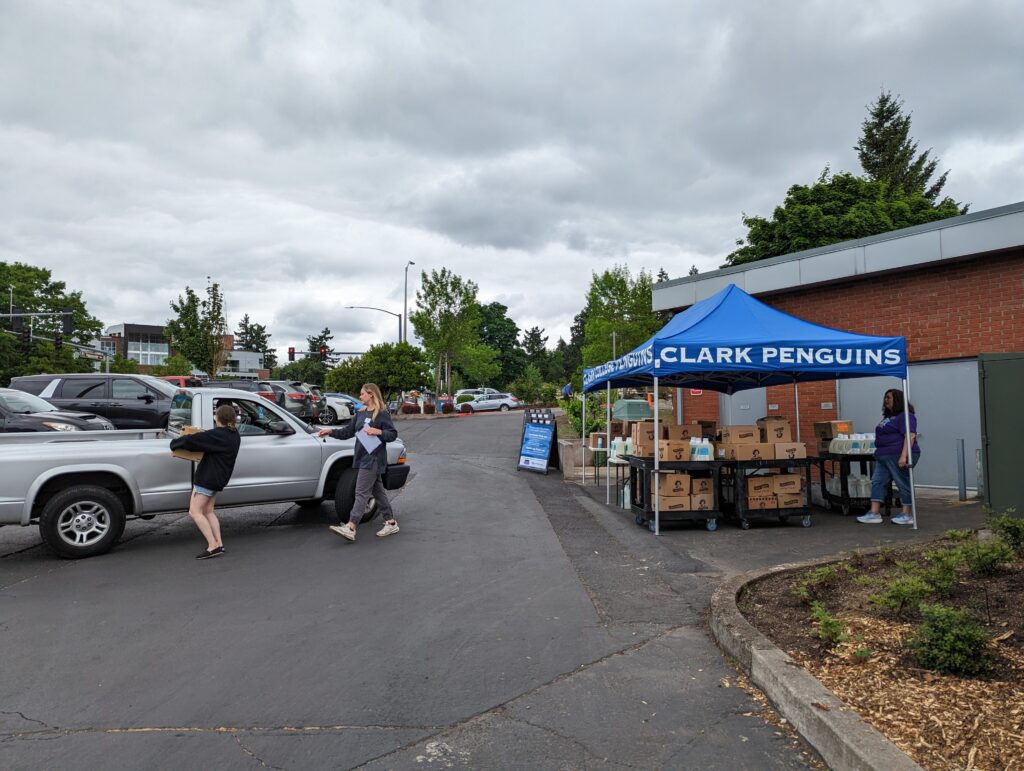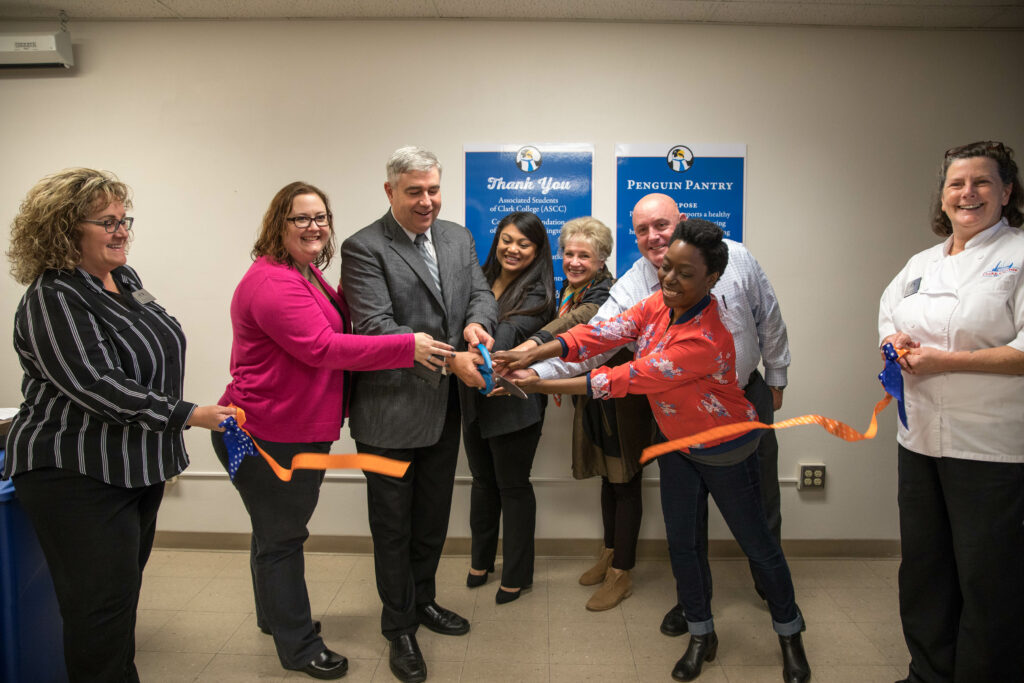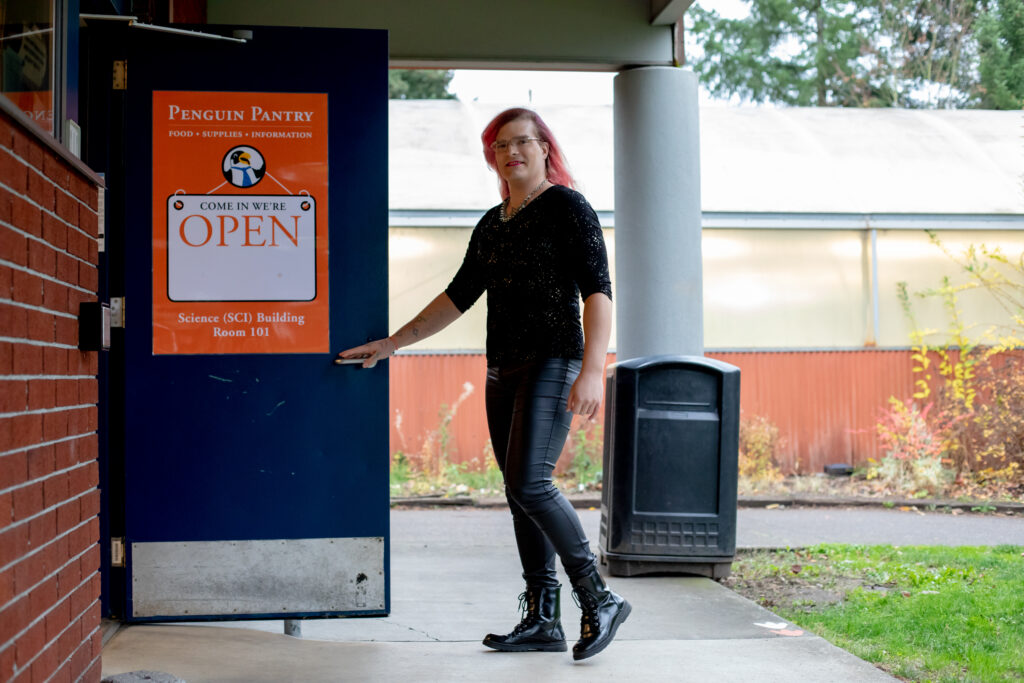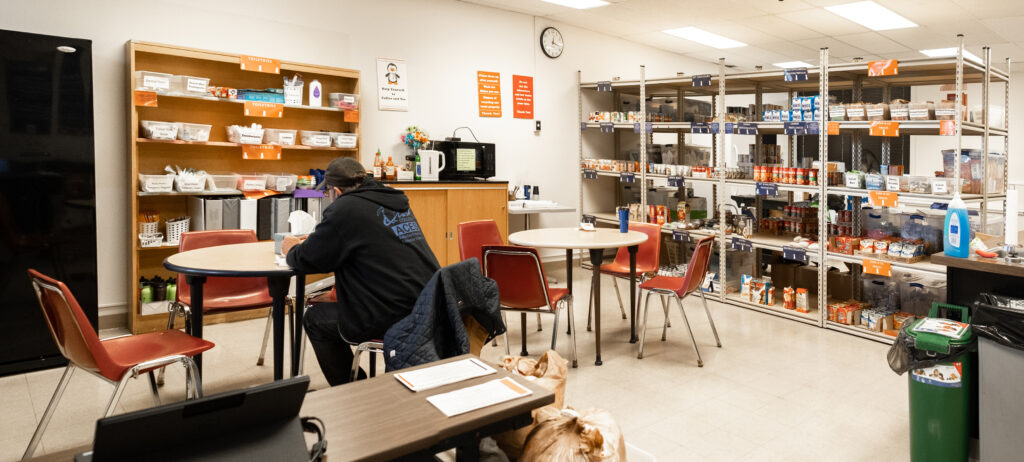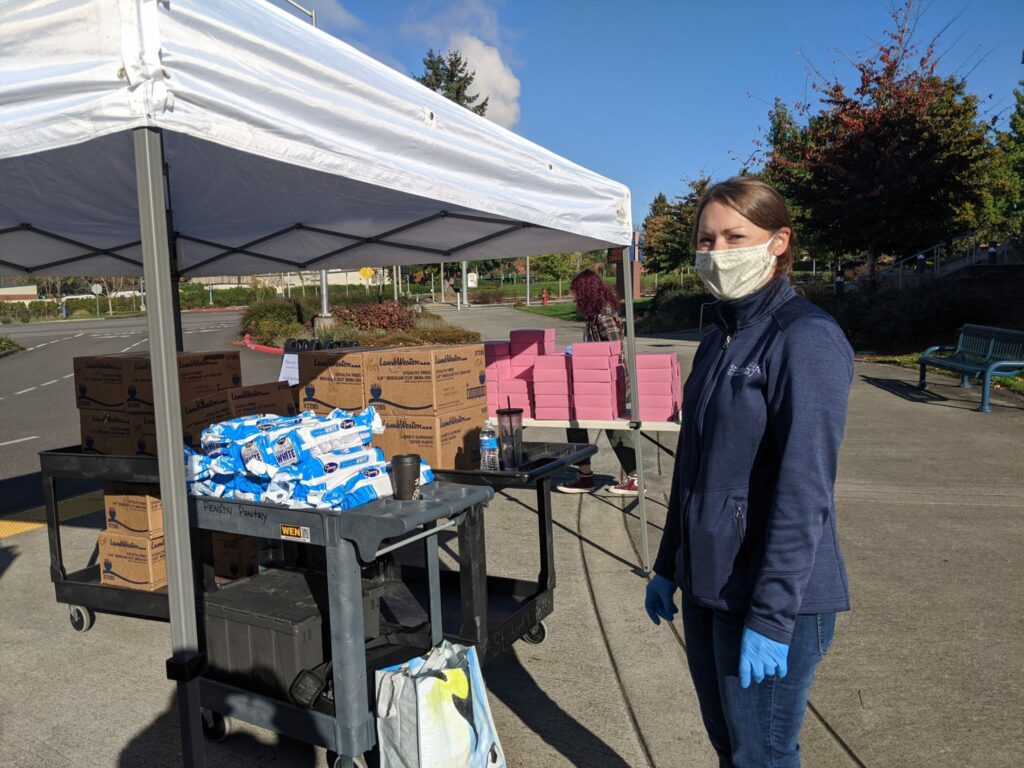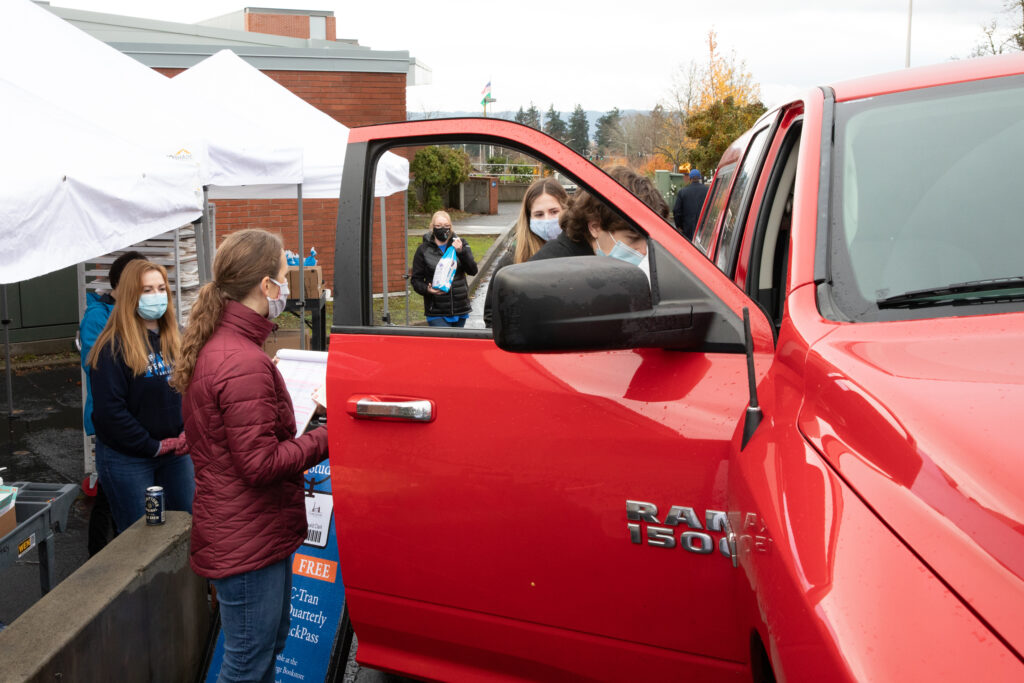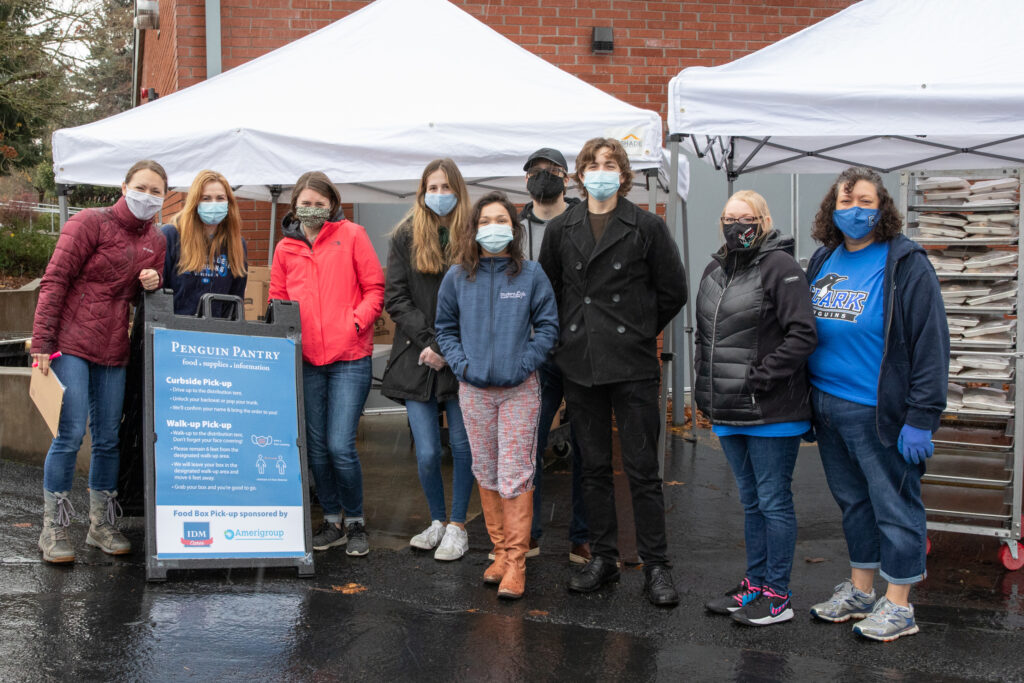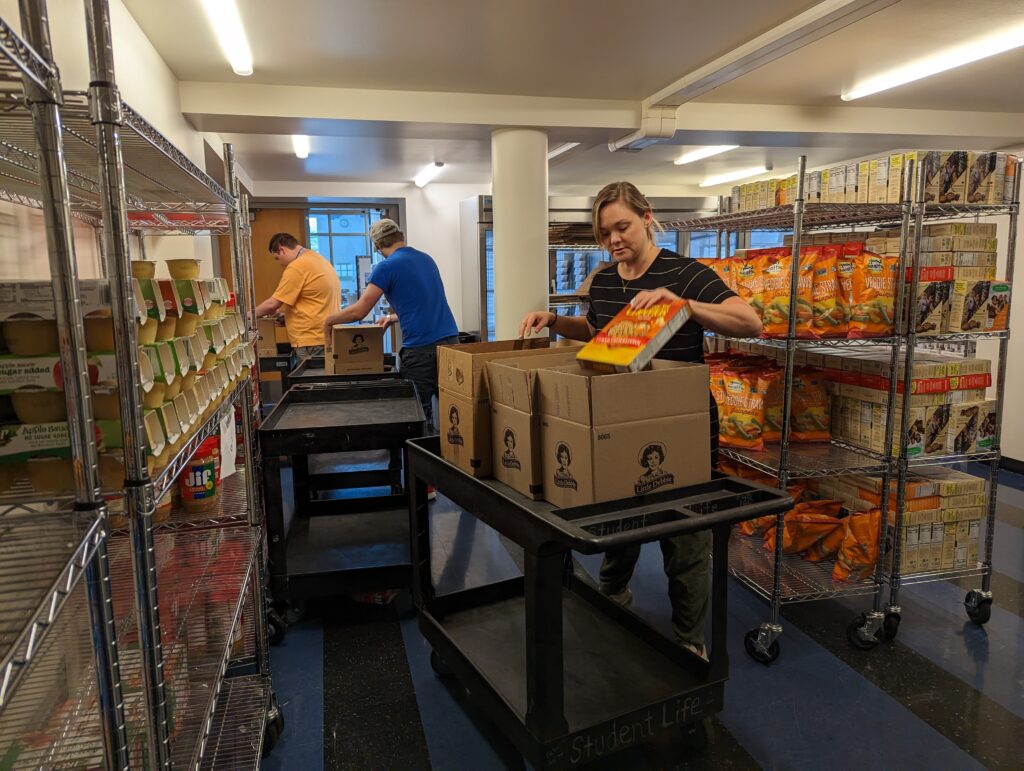McClaskey Culinary Institute
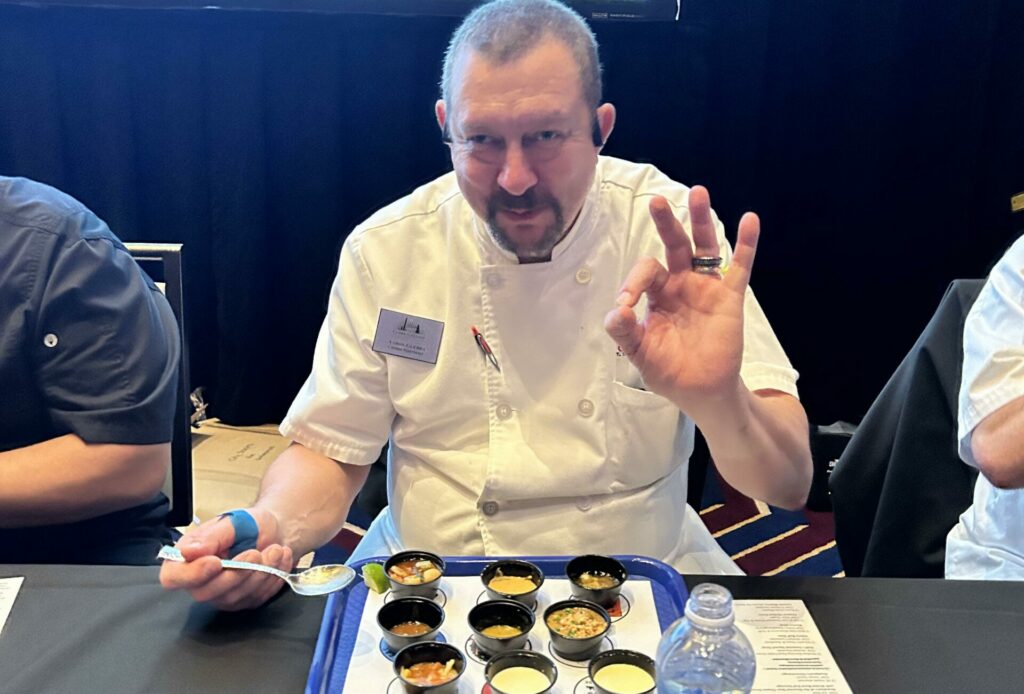
Clark College’s own Chef Aaron Guerra competed in the Soup’s On Battle of the Chefs fundraiser for SHARE at Ilani Casino Resort in Ridgefield on Sunday, Oct. 15.
Chef Aaron was one of nine celebrity chefs who created a delicious soup for the event. Each chef prepared about 20 gallons of their soup, which was sampled by more than 800 soup tasters who lined up, bowls in hand. Everyone had an opportunity to vote for their favorite soup, bestowing the winning chef with the Golden Ladle. The winner was Chef Joe Reid, Hudson’s Bar & Grill for his beer cheese soup with rye croutons and brisket burnt end sausage.
Before the event doors opened, all nine chefs sat down for a soup tasting. Each voted for their favorite. They were not allowed to vote for their own soup. Chef’s Choice Award was a four-way tie between the chefs representing AC Hotels Marriott, Line & Lure Seafood Kitchen & Tap and Kuya’s Casa Kitchen. Heathen Brewing was awarded the top soup by the presenting sponsor.
Alas, Chef Aaron did not win the Golden Ladle Award this year, but his delicious corn and crawfish chowder was eaten up by appreciative soup tasters.
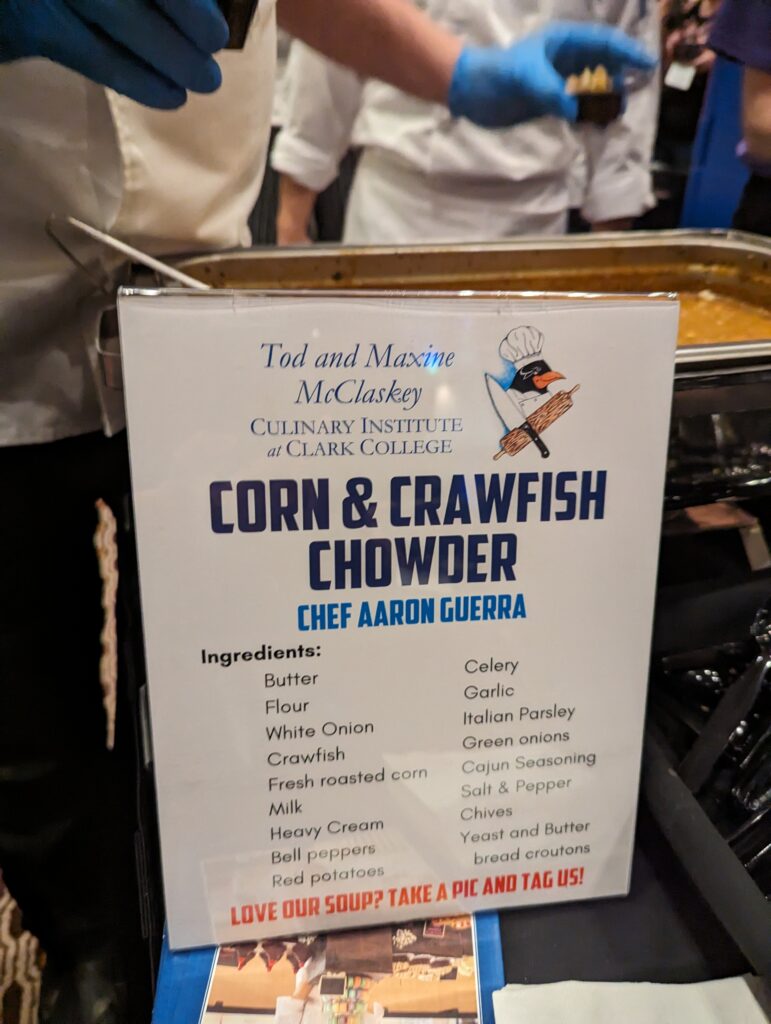
Chef Aaron used these ingredients: crawfish, butter, flour, white onion, fresh roasted corn, milk, heavy cream, bell peppers, red potatoes, celery, garlic, Italian parsley, green onions, Cajun seasoning, salt and pepper, chives and bread croutons.
He said, “My team of students and I made everything from scratch with the freshest ingredients. We roasted ears of corn and made corn stock with the cobs and student-made croutons.”
It took a large volume of ingredients to make enough chowder for 800 people. Chef Aaron and his team used 24 pounds of crawfish meat. They roasted 40 pounds of corn on the cob, then cut a quarter of the corn from the cob and made stock from the cobs.
SHARE’s Soup’s On celebrity chefs and their soups:
- Aaron Guerra, Tod and Maxine McClaskey Culinary Institute at Clark College prepared crawfish and corn chowder
- Tanner Genck, AC Hotels Marriott prepared Deadpool’s chimichanga soup
- Michael Garafolo, Heathen Brewing Feral Public House prepared Hulk’s smashed squash soup
- Joe Reid, Hudson’s Bar & Grill prepared Guardians of the Gourmet beer cheese soup with rye croutons and brisket burnt end sausage
- Fernando Martinez, Kuya’s Casa Kitchen prepared Levanta Muertos (revive the dead) soup
- Ryan Ziegler, Line & Lure Seafood Kitchen & Tap prepared coconut chicken curry soup
- Bobby Rasaphangthong, Nom Nom Restaurant & Grill prepared wonton soup
- Micheal Castaneda, Woody’s Tacos prepared hearty beef stew
- Brandon Edgerton, Wyld Pines Public House prepared lobster bisque

About SHAREand its Soup’s On: Battle of the Chefs event:
SHARE’s Soup’s On event began in 2002 and originally was called Share-a-Bowl.
SHARE’s Executive Director Amy Reynolds said, “The event first began as a way for community members to better understand the experience people have each day when they wait in a ‘soup line,’ just as hundreds of our neighbors do each day at SHARE’s Hot Meals kitchen.”
She added, “SHARE has done incredible work in the community for the past 45 years and with so many people living outside and experiencing food insecurity, there is clearly much more work to do.”
SHARE provides food for all ages—including through its backpack program for kids, operates four shelters, provides rental assistance with case management to help clients secure affordable housing, and assists people living on the streets as well as those in risk of losing their home. Learn more here.
